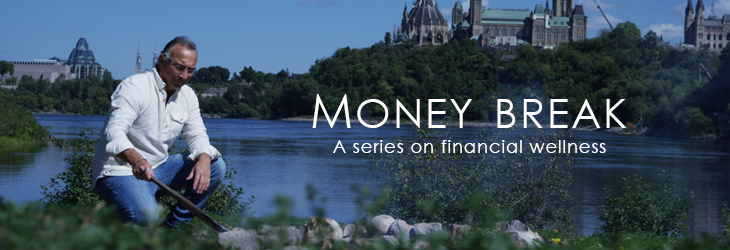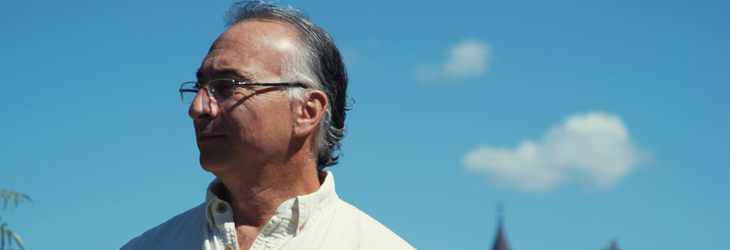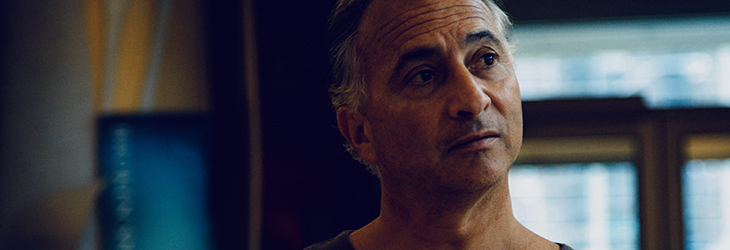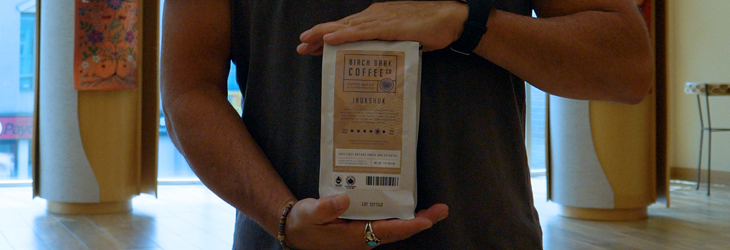Meet Mark
Chapter 1: A First Nations social entrepreneur (Transcript)
Chapter 2: Lessons from Mother Earth (Transcript)
Chapter 3: Entrepreneurship and financial independence (Transcript)
Chapter 4: Paying it forward (Transcript)
Mark: A hard worker who makes a difference in his community
Indigenous Canadians have indicated that financial education is a priority and complements other training programs in their communities. To be successful, financial literacy programs must be community-driven, created by and for, Indigenous Peoples. Meet one Canadian who’s making a difference, for his family and his community.
On a hot summer morning, Mark Marsolais-Nahwegahbow kneels along the shore of the Ottawa River and contemplates its importance. “When you look at Mother Earth and you look at it from a traditional perspective, water is seen as the veins. [Water is] what makes Mother Earth survive, as well as us.”
Coffee for water
Mark, an Ojibwa from Whitefish River First Nation in Birch Island, Ontario who lives in Ottawa, is the founder of Birch Bark Coffee, a social enterprise that brings fresh drinking water to Indigenous families across Canada. A portion of the proceeds will go towards installing water purifiers in homes on reserves without access to potable water.
“Water is a fundamental right. I don't think anybody, whether we're First Nations or not, should go without water.”
Financial stability
Some may think the coffee business is turning Mark into an overnight sensation, with orders coming in from across Canada and around the world. However, like many Canadians, Mark and his family live a humble yet comfortable life. Mark has a consulting business and works overnight as a residential school crisis counsellor. The family has a house, a mortgage, bills and that ever-present pressure to keep debt at bay. Mark also took out a small loan to get the business started and he hopes to pay it off soon.
“We do put money aside for things that we want to do [...] like we bought kayaks and we put money aside. Our spending is not hugely materialistic. Our money is more put towards eating healthy, so if we spend a lot of money it's more on produce so we can actually feed our minds and our souls a lot better so that we're really healthy.”
Life lessons about money
Mark admits his relationship with money has not always been easy. He remembers the days of his youth “trying to find myself,” travelling across Canada doing odd jobs and living on potatoes, bread and margarine.
“When I was young, I found a means or a way to survive and if I had to survive on potatoes and bread, then I did. I didn’t live beyond my means. If I had 10 bucks, I used it to buy food.
“I also knew growing up that you had to work. I knew that you had to earn it. Earning a living was bringing income in so you just had to work hard no matter what. You just had to keep working. If it was 12-hour days, you just kept working to bring that money home.”
Mark continues to work hard no matter what his plans involve. He wishes he had learned a bit more about retirement savings and didn’t have to play catch up now at 52.
“I think in the era that I was raised in, I wasn't really taught about RRSPs. I wasn't really taught about saving money. You just lived your life, and as a child, as a youth, we just grew up having fun, playing with our friends."
Future plans
Mark hopes one day to take his coffee business to the next level by opening cafés on reserves across Canada and employing Indigenous youth to manage them, on the condition they learn about money and invest in savings and education.
“I have some dreams and goals, and I think that as an entrepreneur my head's always going 100 miles an hour and really trying to establish what I want. I set my short-term and long-term goals and I try and stay achievable. But being a First Nations entrepreneur, I'm always trying to even shoot for the stars and go even bigger. If I am successful and I achieve that then I'll be proud of myself for that.
Related tool
If you have your sights set on making the world a better place like Mark, taking control of your finances and having a plan are two important steps. Whatever goal you have in mind, a great way to get started is by using our Financial Goal Calculator.



